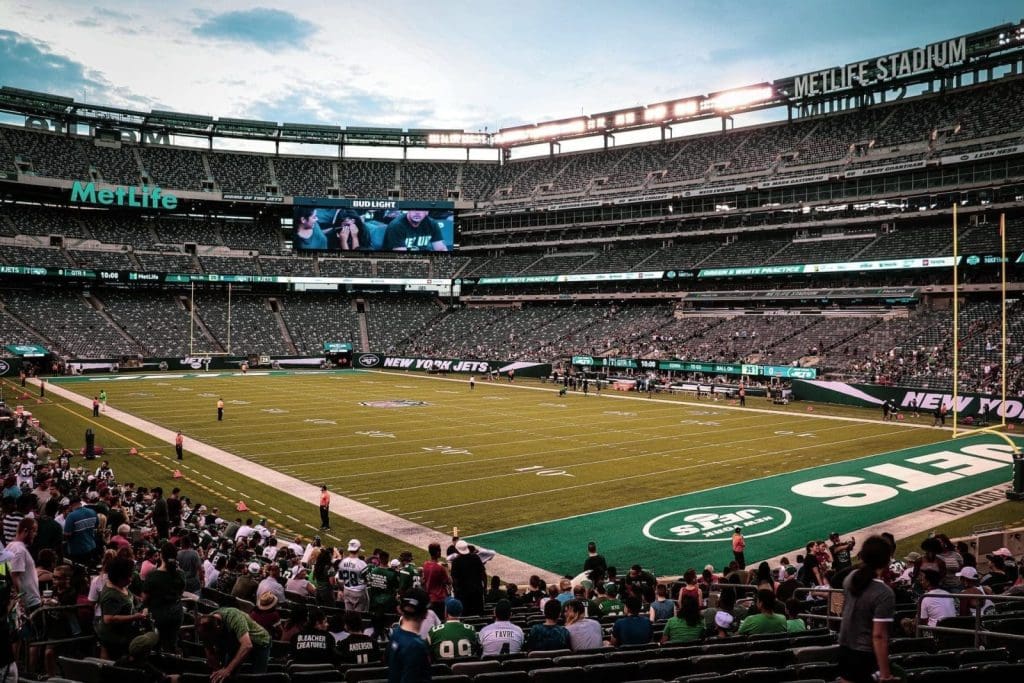In 2018, the state of New Jersey successfully legalized sports betting in a battle that involved a lengthy Supreme Court case, years of campaigning and hundreds of thousands of dollars in investment. Two years after legalization, the sports betting and gambling industry in New Jersey is a strong, vibrant and competitive sector that brings the state government millions of dollars in tax revenue every year.
Keep reading to learn more about how New Jersey was able to legalize sports betting and how it led the way for other states to follow.
How Did We Het Here?
In 1992, the Professional and Amateur Sports Protection Act, or PASPA, was passed, which banned sports betting in nearly every US state. After PASPA, your only option for sports betting was to hop on a plane to Nevada (with some sports lotteries were allowed in Oregon, Montana and Delaware). As soon as PASPA was passed, the state of New Jersey began to advocate against it and push for greater freedoms on gambling and betting in New Jersey.
However, the New Jersey politicians and activists fighting to legalize sports betting in the state met resistance at every turn. Professional and collegiate sports associations continually sued against the state’s efforts because they were concerned that the legalization of sports betting could endanger the integrity of their sports matches.
Finally, 20 years after the passage of PASPA, New Jersey was able to take a step forward when the New Jersey State Legislature passed the Sports Wagering Act, which allowed sports wagering specifically at casinos and racecourses in New Jersey. After this success, New Jersey continued to fight the sports leagues in court and their battle made its way all the way to the top – the Supreme Court.
In 2018, the Supreme Court ruled in New Jersey’s favor and held that the federal ban on sports betting was actually unconstitutional. Since this monumental victory, 10 sports betting shops have opened across New Jersey, all offering a full suite of bets that can also be accessed from mobile applications.
The Rise of Online Sportsbook Casinos
When sports betting was legalized, it was not just legalized for brick-and-mortar sports betting shops. Once sports betting was allowed and sports betting shops opened, they also launched online platforms. Where it is legalized, online and mobile sports betting has grown increasingly popular over the course of the last 10 years, as online betting is extremely convenient.
Most Americans enjoy watching sports from the comfort of their own homes, at a tailgate, or (if you are lucky enough) at the stadium itself. Mobile sports betting platforms allow sports fans to place their bets, no matter where they are and carry on enjoying the game. The online sports betting market is also very competitive, so online sports betting platforms are always offering punters competitive deals, good odds and new bets, in order to stand out from the competition. For example, in New Jersey sportsbooks like BetMGM are more popular than ever and boast an impressive array of different bets for punters to choose from.
The Wave of States Following New Jersey
By fighting for nearly 30 years to overturn PASPA, New Jersey paved the way for other states to follow in their footsteps. This style of follow-the-leader legalization is not unique to sports betting. Once the Supreme Court ruled that the blanket ban on sports betting was unconstitutional, all eyes turned towards New Jersey to see how the industry would react and how the state would handle the new freedoms.
According to a Forbes report, in December of 2020, sports bettors wagered a jaw-dropping $996.3 million, setting a record for the amount bet in a single month; over the course of 2020, punters bet over $6 billion. When you consider that gambling is taxed at a high rate, the amount of revenue the state receives as a result of these bets is significant.
Currently, New Jersey receives about 20 percent of its gambling revenue from its neighbors, New York. Many New Yorkers make the short journey to New Jersey in order to place bets and the New York State Legislature is now looking at these numbers and considering a push for legalization. However, New York is not the only state looking at the revenue New Jersey has generated – there are now only three states in the entire country that have either not yet passed bills legalizing sports betting or are currently trying to pass those bills.
New Jersey’s legalization of sports betting and the success of its sports betting industry has created a seismic shift in American culture and in just two years has led almost every state to follow in its footsteps.
Photo by Izaac Crayton on Unsplash
Tom is a lifelong New Jersey resident, Rutgers and FDU alumni and the publisher of The Digest.
- Tom Lavecchiahttps://thedigestonline.com/author/tom/
- Tom Lavecchiahttps://thedigestonline.com/author/tom/
- Tom Lavecchiahttps://thedigestonline.com/author/tom/
- Tom Lavecchiahttps://thedigestonline.com/author/tom/


